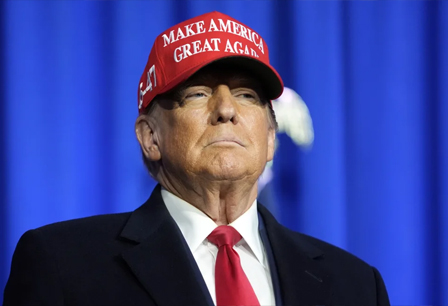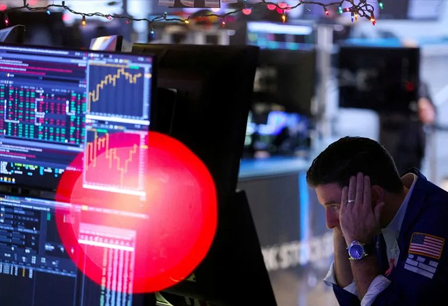The investor, who successfully bet against the U.S. mortgage market before the 2008 financial crisis, has just made a huge gamble.
It's a puzzling decision that will shock more than one investor.
But Michael Burry is accustomed to blows of brilliance. The emblematic financier, known for having bet on the collapse of subprime mortgages before the 2008 crisis, likes to go against the general trend on Wall Street.
For the past few days, the man whose business acumen was made famous by the film "The Big Short" in 2015, has been out of phase with the idea that the medium-term horizon of the economy is not so dark that one might have feared it a few weeks ago.
Indeed, data showing that inflation may have peaked convinced many investors that the Federal Reserve was likely to be less aggressive in its rate hikes to fight higher prices. Many economists fear that high interest rates will cause a hard landing for the economy.
U.S. inflation slowed notably last month, data from the Bureau of Labor Statistics indicated on Aug. 10, setting the possibility of a pause in Fed rate hikes. The headline consumer price index for the month of July was estimated to have risen 8.5% from last year, down from the 9.1% pace recorded in June and firmly inside the Street consensus forecast of 8.7%.
Debt Crisis?
Burry thinks, however, that the worst is yet to come. He says he foresees a household debt crisis that would pose a serious danger to the economy.
"Net consumer credit balances are rising at record rates as consumers choose violence rather than cut back on spending in the face of inflation," the legendary investor posted on Twitter on Aug. 12, with a graph from Bloomberg showing that U.S. consumer borrowing increased by $40.2 billion in June from the prior month. This was the second-biggest increase ever, according to data from the Federal Reserve.
"Remember the savings glut problem? No more. COVID helicopter cash taught people to spend again, and it's addictive. Winter coming," Burry added.
"Winter coming" seems to be a reference to HBO series “Game of Thrones." Characters used the phrase as a warning.
He seems to suggest that households continue to spend money without looking, which also affects their savings. In doing so, Americans are putting themselves in a precarious financial situation while inflation remains a drag on the economy.
Credit- and debit-card spending, which account for more than 20% of total payments, gained 8% in July from a year earlier, while card spending per household climbed 5.3%, easing from a 5.7% ascent in June, according to a report on July consumer payments by Bank of America Institute, the bank’s internal think tank.
Burry seems to confirm his pessimism in an Aug. 15 filing with the Securities and Exchange Commission. In this regulatory document, Scion Asset Management, his firm, liquidated its entire portfolio of U.S. stocks as of June 30.
Burry only owned shares of a single company, Geo Group, which invests in private prisons and mental health sites. He owned 501,360 Geo shares worth $3.31 million, according to the filing.
The revelation of this information caused Geo Group shares to jump nearly 11% during the Aug. 15 trading session. The company has a market capitalization of over $943 million at the time of writing.
As of March 31, Scion Asset Management had invested in 11 companies, including Alphabet (GOOG) , Meta Platforms (META) (Facebook, Instagram, WhatsApp), Stellantis (STLA) , Bristol-Myers Squibb (BMY) and Cigna (CI) . Geo Group was not on the list in March. It's therefore a new addition.
The firm also had bearish put options against Apple (AAPL) shares.
This is not the first time that the financier resize its U.S. stock holdings. By the third quarter of 2021, Burry had reduced his portfolio from 20 holding companies to six in the space of three months.
Stock market regulations require managers of funds with more than $100 million in U.S. equities to file a document, known as a 13F, within 45 days of the end of the quarter to list their holdings in stocks that trade on U.S. exchanges.












